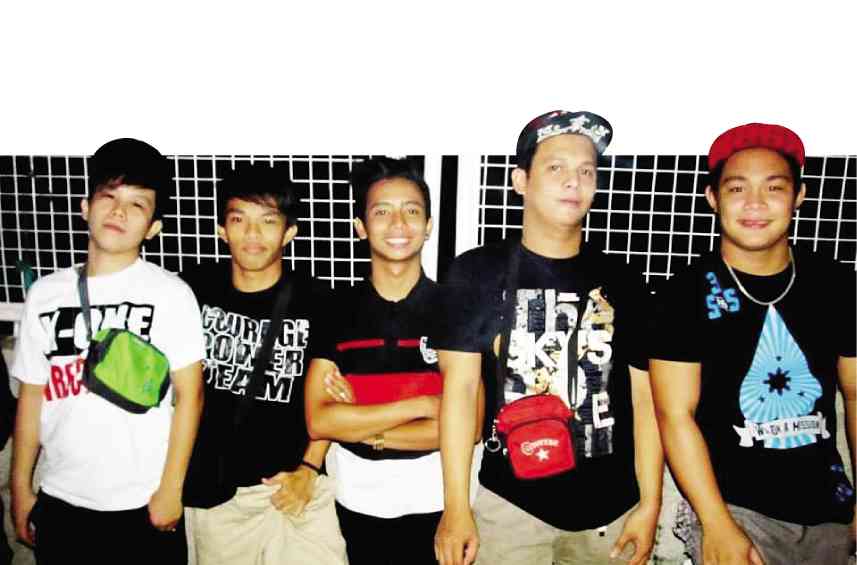
D-Music members (from left): Jerwin Gonzalez, Razel de Guzman, Rhen Lorica, Marc Cortezano and Mark Relox
In a world where everybody wants to be heard, emerging rap artist Marc Cortezano considers music his best avenue for self-expression.
Through rap, he feels he makes sense of the world and gives hope to young people who share his passion. Through rap, the voiceless get heard.
Marc, 25, may not have a label yet or a catchy name with which to compete with mainstream artists. But, he says, he has a full heart that yearns to tell the world how he feels.
“The world is filled with people who merely exist and are never heard. Music makes that possible,” he says.
Marc formed a group called Dahlia Music (D-Music) three years ago, from the name of the street where he lives, somewhere in Caloocan City.
Dahlia—Marc and four other young rappers whom he trains—has written its own songs and created music videos since 2013. They now have 17 songs uploaded to their YouTube channel Dahlia Music (https://www.youtube.com/user/cOoOz29/videos).
The warm online reception—“likes,” “shares” and comments—of friends and strangers sustain him, he says, on top of the fulfillment he gets from composing. Dahlia gets bashers, too, but Marc is not deterred or distracted.
“They call me boss,” Marc says of his young group mates, who volunteered to be trained, and who dream of becoming professional rappers. Engaging in music, Marc adds, is an alternative to cutting classes and addiction to computer games, alcohol or drugs.
To gain more experience, Marc joins rap battles and even organizes a barangay competition called “Free Jam Mic” for aspiring rappers. Around 100 people join this competition for the same reason: to showcase their talents and tell their stories.
Inspired by his father who also plays the guitar, Marc had an early exposure that included being part of a band when he was in high school. As the vocalist, he sang OPM alternative songs. He learned to rap from Dcloc, an “underground” rapper. A photo of a recording studio on Facebook inspired him to record his own songs.
Among his influences are famous Filipino rap artists Gloc-9, Blaze N Kane, Kosza Uno and the late Francis Magalona.
Necessary change
“Rappers as gangsters—that’s the perception we wanted to change about rap. We’re not gangsters, addicts, emotional or irrationally angry people, or bums,” Marc says. “Gloc-9’s lyrics are relatable, profound and deep.”
Rap lyrics do not need cuss words to express rage or discontent, he adds, and describes Dahlia’s material: “Our songs are all about love for family, significant others and nature.”
Marc cites street children who do drugs on the streets as the usual “patrons” of rap. “When they get hurt, angry or sad, they express themselves through rapping. Music can change moods and even our personalities.” A friend who committed suicide always listened to “very sad, depressing music,” he recounts.
He concludes, “People should listen to specific kinds of music. I hope that the music I’m making will only lift spirits.”

